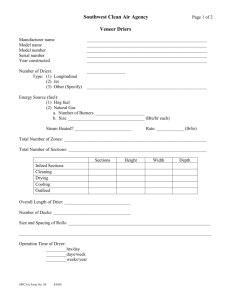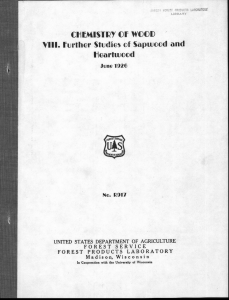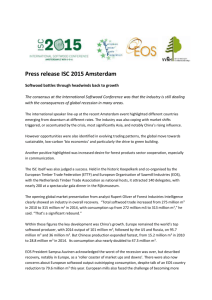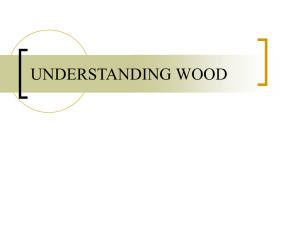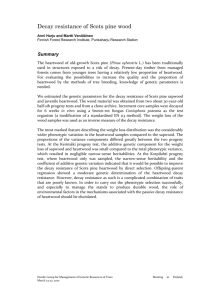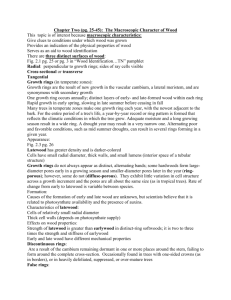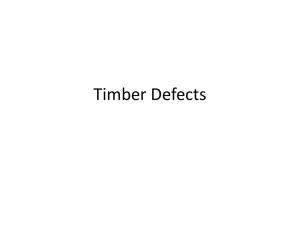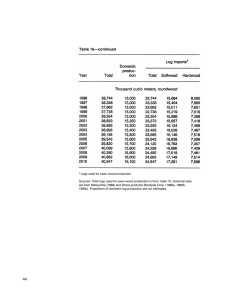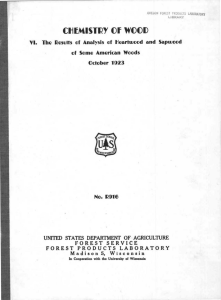Materials Used for Roof Construction and Joiner Components
advertisement
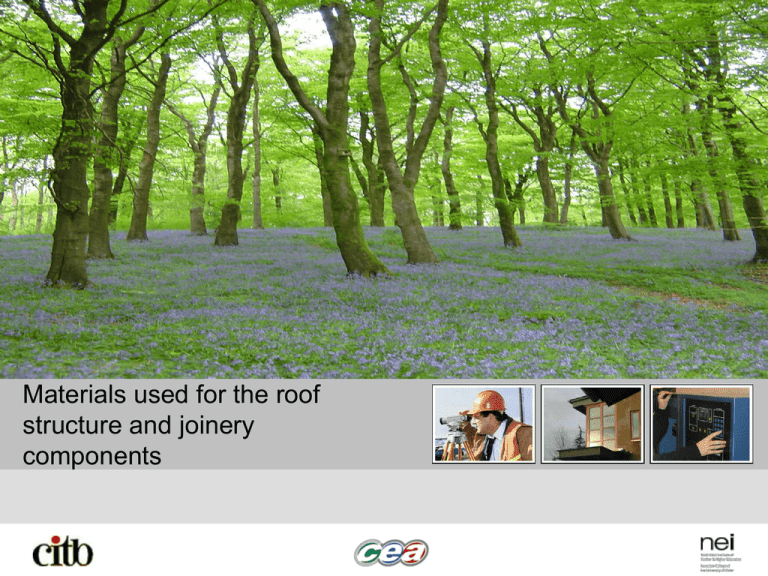
Materials used for the roof structure and joinery components Timber Both sapwood and heartwood are in use in the construction industry. Both have approximately equal strength but heartwood is naturally more durable than sapwood. Wood is an organic material which should only be used from forests which are replanted once the timber has been felled. Sapwood The outer active part of a tree, which as it’s name implies, receives and conducts sap from the roots to the leaves. As this part of the tree matures it gradually becomes heartwood. Sapwood Heartwood Timber (solid) Heartwood The natural non-active part of the tree, often slightly darker in colour than sapwood, gives strength and support to the tree and provides the most durable wood for conversion into timber. Bark The outer sheath of the tree. It functions as :a moisture barrier thermal insulator an armoured plate against extremes in temperature, attack by fungi, insect and animals. Sapwood Heartwood Softwoods and Hardwoods The term Softwood and Hardwoods refer to the botanical origins of wood and not to their density or physical hardness. Softwoods Softwoods come from cone-bearing trees, often with evergreen needle-like leaves. Softwood trees are usually much faster growing than hardwoods. Softwood are generally used for roof timbers, dividing walls, garden decking or any other location where timber is used structurally but the appearance is not important. Wood used in a roof Joinery components made from softwood Door linings Stair strings Floor Joist Softwood timber studs Softwood roof timbers Plywood sheeting Hardwood Hard wood comes from broad-leaved trees, Most are Deciduous but they can be evergreen. Native hardwoods include :Ash Oak Sycamore Beech Hardwood Hard wood comes from broad-leaved trees, Most are Deciduous but they can be evergreen. Native hardwoods include :- Horse Chestnut Elm Lime Hardwood Ash Table Doors Timber sheeting
